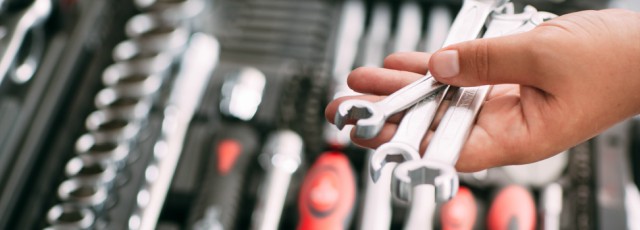11 real-life HVAC service technician interview questions and answers
HVAC Service Technicians are responsible for installing, maintaining, and repairing heating, ventilation, and air conditioning systems. They play a critical role in ensuring indoor comfort and air quality.
These HVAC service technician interview questions are directly sourced from real hiring managers and they are ready to use.

Make sure that you are interviewing the best HVAC service technician candidates. Sign up for Workable’s 15-day free trial to hire better, faster.
11 good HVAC service technician interview questions
- What does BTU/CAV/AHU mean?
- What is a cooling or heating load? How do you calculate it?
- What is the difference between a heat pump, heating, and refrigeration?
- What are the different ways heat can be lost or gained?
- Describe an HVAC job where you sacrificed safety for speed, and what was the outcome?
- How do you handle a customer who is angry or frustrated over their bill?
- In HVAC jobs, did you ever turn an unhappy customer into a happy customer?
- How do you view mobile technology and its role in the future of the HVAC industry?
- What safety violations do you see most often, and how would you prevent them?
- Are you more experienced with air cool chillers, water cool chillers, magnetic barring chillers?
- Do you do residential chillers?
Here are 11 essential interview questions and sample answers to help identify the best candidates for this role.
1. What does BTU/CAV/AHU mean?
This question assesses the candidate’s knowledge of HVAC terminology, including BTU (British Thermal Unit), CAV (Constant Air Volume), and AHU (Air Handling Unit).
Sample answer:
“BTU stands for British Thermal Unit, a measurement of energy used to quantify heating and cooling capacities. CAV refers to Constant Air Volume, a type of HVAC system that maintains a consistent airflow rate. AHU stands for Air Handling Unit, a device responsible for circulating and conditioning air in HVAC systems.”
2. What is a cooling or heating load? How do you calculate it?
This question evaluates the candidate’s understanding of cooling and heating load calculations, a fundamental aspect of HVAC system design.
Sample answer:
“Cooling or heating load refers to the amount of heat energy that needs to be added or removed from a space to maintain the desired temperature. It is calculated by considering factors such as the building’s size, insulation, occupancy, and climate. Load calculations are essential for sizing HVAC equipment correctly.”
3. What is the difference between a heat pump, heating, and refrigeration?
This question assesses the candidate’s knowledge of HVAC concepts, including the distinctions between a heat pump, heating systems, and refrigeration systems.
Sample answer:
“A heat pump is an HVAC system that can both heat and cool spaces by transferring heat from one location to another. Heating systems primarily generate heat to warm spaces, while refrigeration systems are designed to remove heat from spaces to cool them.”
4. What are the different ways heat can be lost or gained?
This question evaluates the candidate’s awareness of heat transfer mechanisms, which are essential for HVAC system efficiency.
Sample answer:
“Heat can be gained or lost through conduction, convection, and radiation. Conduction involves heat transfer through direct contact, convection through the movement of fluids (liquids or gases), and radiation through electromagnetic waves.”
5. Describe an HVAC job where you sacrificed safety for speed, and what was the outcome?
This question assesses the candidate’s commitment to safety in HVAC work and their ability to make sound decisions under pressure.
Sample answer:
“I prioritize safety in all HVAC jobs. There was a situation where there was pressure to complete a repair quickly, but I chose not to sacrifice safety. Taking the necessary precautions, we completed the job without incidents, ensuring the safety of both our team and the customer.”
6. How do you handle a customer who is angry or frustrated over their bill?
This question evaluates the candidate’s customer service skills and their ability to address customer concerns professionally.
Sample answer:
“I listen actively to the customer’s concerns, empathize with their frustration, and explain the billing details clearly. If there are discrepancies, I investigate and rectify them promptly. My goal is to ensure the customer feels heard and satisfied with the resolution.”
7. In HVAC jobs, did you ever turn an unhappy customer into a happy customer?
This question assesses the candidate’s ability to handle customer dissatisfaction and provide effective solutions.
Sample answer:
“Yes, in a previous HVAC job, a customer was unhappy with a previous contractor’s work. I thoroughly assessed the system, addressed the issues, and provided a detailed explanation to the customer. By delivering high-quality service and clear communication, we turned the unhappy customer into a satisfied one.”
8. How do you view mobile technology and its role in the future of the HVAC industry?
This question explores the candidate’s perspective on the role of technology in HVAC service and their adaptability to industry advancements.
Sample answer:
“I believe mobile technology is crucial for the HVAC industry’s future. It allows for remote monitoring, diagnostics, and efficient scheduling. Embracing mobile tools can enhance service quality, response times, and customer satisfaction.”
9. What safety violations do you see most often, and how would you prevent them?
This question assesses the candidate’s awareness of common safety violations in HVAC work and their proactive approach to preventing them.
Sample answer:
“Common safety violations include inadequate PPE usage, improper equipment handling, and failure to follow lockout/tagout procedures. To prevent these violations, I prioritize safety training, provide proper PPE, and implement strict safety protocols and inspections.”
10. Are you more experienced with air cool chillers, water cool chillers, magnetic barring chillers? Do you do residential chillers?
This question evaluates the candidate’s specialization and experience in working with specific types of chillers, including air-cooled, water-cooled, and magnetic bearing chillers.
Sample answer:
“I have experience with various types of chillers, including air-cooled and water-cooled chillers. I am also familiar with magnetic bearing chillers. While I primarily focus on commercial HVAC systems, I have some experience with residential chillers as well. My expertise lies in providing comprehensive chiller services and maintenance for a wide range of clients.”
What does a good HVAC service technician candidate look like?
A top-notch HVAC Service Technician should possess the following qualities:
Technical expertise: Proficiency in HVAC systems, equipment, and relevant tools, as well as a deep understanding of HVAC principles, regulations, and safety procedures.
Problem-solving skills: The ability to diagnose and resolve complex HVAC issues efficiently, ensuring optimal system performance.
Customer service: Strong interpersonal and communication skills to interact professionally with clients, address concerns, and provide exceptional service.
Safety focus: A commitment to safety protocols and the prevention of accidents, ensuring the well-being of themselves and others.
Adaptability: Readiness to embrace technological advancements and industry changes to stay competitive and provide innovative solutions.
Red flags
Beware of HVAC Service Technician candidates who exhibit the following red flags:
Safety neglect: Candidates who downplay the importance of safety protocols or have a history of safety violations.
Limited technical knowledge: Lack of fundamental HVAC knowledge, experience, or certifications required for the job.
Poor customer service: Difficulty in handling customer complaints, dissatisfaction, or resolving conflicts professionally.
Resistance to technology: An aversion to adopting new technologies or an unwillingness to learn and adapt to industry advancements.
Specialization mismatch: Candidates who claim expertise in areas not relevant to the job or who lack experience in essential areas.
